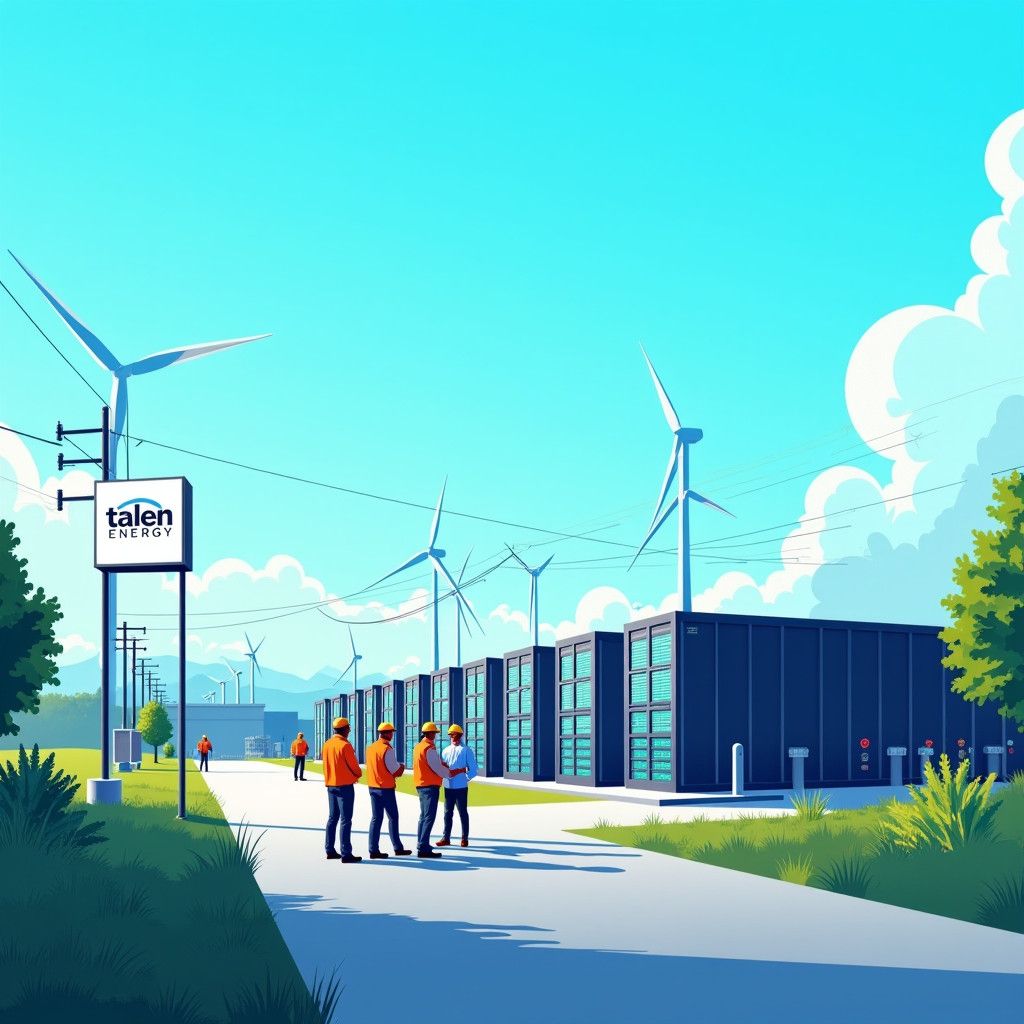In today’s rapidly advancing digital landscape, data centers play a crucial role in supporting business operations and meeting the growing demand for cloud services. Talen Energy, a prominent player in this sector, is currently facing significant challenges as it seeks to expand its data center capacity amid regulatory hurdles and market pressures. The outcome of this struggle not only affects Talen Energy but also has broader implications for the data center industry and the future of technology infrastructure.
In December 2024, Talen Energy announced its intention to appeal a decision by the Federal Energy Regulatory Commission (FERC), which rejected an agreement for its planned data center in partnership with Amazon. The proposed facility was slated to operate in Pennsylvania, a state that has become increasingly attractive for data centers due to its affordable energy supply and strategic location. However, FERC’s rejection poses risks not just to this project but also to Talen Energy’s broader ambitions in the burgeoning data center market.
The crux of Talen Energy’s challenge lies in its efforts to navigate the evolving regulatory framework that governs energy distribution and data center operations. With the explosive growth of cloud computing, data centers require abundant energy to power their operations, and any limitation on energy supply can stymie growth. Talen’s previous attempts to expand rely heavily on forming strategic partnerships with major tech entities, with Amazon being a key player in its plans. The proposed site aimed to host cutting-edge technology that would not only fulfill Amazon’s needs but also generate substantial economic benefits for the local community.
However, opposition has surfaced from local communities and environmental advocacy groups, raising concerns about energy consumption, carbon emissions, and land use. Such pushback has heightened scrutiny on the energy-intensive nature of data center operations, prompting regulators to deliberate carefully before granting new licenses. As a consequence, Talen Energy finds itself at the center of a debate that balances economic growth and environmental stewardship.
This situation is not unique to Talen Energy. The broader data center industry is grappling with similar challenges globally as technology firms race to establish more facilities to support their cloud services. For instance, in Europe, tech giants are actively engaging with regulators to find a sustainable balance between operational needs and environmental accountability. Companies are increasingly investing in renewable energy sources to address public concerns and regulatory pressure, a strategy Talen Energy may need to adopt to regain favor with regulators and local communities.
Exemplifying a proactive approach, some organizations have initiated partnerships with renewable energy suppliers to develop sustainable energy solutions tailored for large-scale data center operations. Additionally, incentives from governments for transitioning to green energy sources can be advantageous in establishing new facilities while minimizing regulatory roadblocks. By prioritizing sustainability, these firms not only mitigate risks but also enhance their reputational standing with customers who are increasingly concerned about the environmental impact of their service providers.
Economic factors also play a vital role in Talen Energy’s mission. The rise in remote work and the surge in online activities have amplified the demand for robust data solutions. Analysts project that data center operations will continue to grow, making Talen Energy’s expansion efforts potentially transformative not only for the company but also for the local economy, if they can overcome these regulatory hurdles. Successful expansion will likely result in increased job opportunities, an enhanced tax base, and reinforced local infrastructure.
The stakes are undeniably high as Talen Energy navigates its legal and regulatory battles. If Talen manages to secure the necessary approvals, it could position itself as a leader in the data center market — an opportunity that comes with significant long-term benefits. Conversely, a failure to address these challenges could hinder not only Talen’s growth aspirations but also inhibit the broader data center industry’s evolution in a world increasingly reliant on digital infrastructure.
In conclusion, the fight for data center expansion encapsulates the intersection of technology, energy, and regulatory frameworks. Talen Energy’s response to these pressures will be critical in determining its future trajectory. As stakeholders closely monitor this unfolding situation, lessons learned here could set precedents for other companies navigating similar challenges in a landscape where technology and environmental considerations increasingly dictate the rules of engagement.












